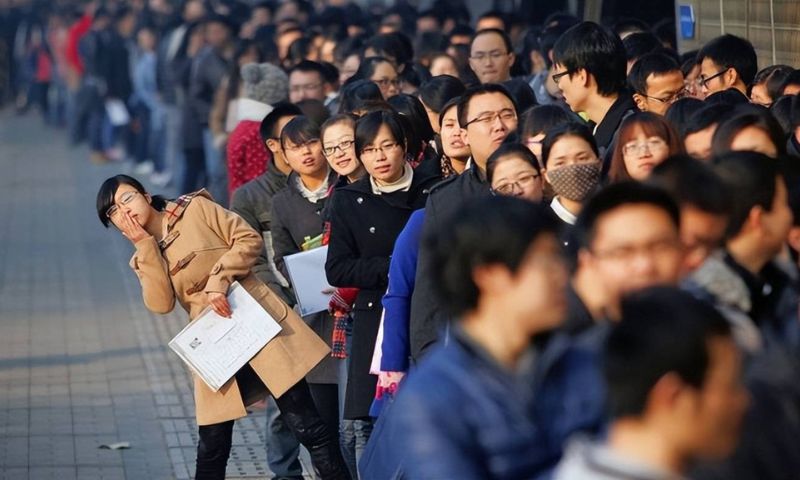BEIJING: In a move reflective of evolving economic and societal changes, China has opted to discontinue the release of youth unemployment statistics, a decision that some experts view as a signal of the country’s shifting economic landscape.
The reasoning behind this decision, as stated by a government spokesperson, is attributed to the dynamic alterations taking place in the world’s second-largest economy and its societal fabric. This decision comes at a time when China’s economic performance and employment scenario have been subjects of intense scrutiny.
In June, alarm bells rang as China reported a record-high youth unemployment rate in urban areas for individuals aged 16 to 24, exceeding 20%. Amidst these concerns, the People’s Bank of China took an unexpected step to stimulate growth by reducing key interest rates, underscoring the gravity of the situation.
Furthermore, the most recent official data disclosed an overall unemployment rate of 5.3% for July, indicating a broader challenge with employment in the country. It is within this context that the government chose to suspend the publication of youth joblessness data, though no specific timeline for this suspension was provided.
A spokesperson for the National Bureau of Statistics, Fu Linghui, explained that the methodology for calculating unemployment among young individuals requires reassessment due to the constant evolution of the economy and society. Fu also hinted at the influence of demographic shifts, particularly the growth in the number of students aged 16 to 24, potentially affecting unemployment figures. It’s worth noting that China has historically not classified students as unemployed.
Youth unemployment figures had been published by China since 2018, although data concerning the employment status of young individuals in rural areas has not been released. This suspension of youth unemployment data publication swiftly gained traction on the Chinese social media platform Weibo, sparking discussions and concerns about the transparency and accuracy of government statistics.
Social media users expressed scepticism, with one commenting, covering your mouth and closing your eyes, can that really solve problems? With flexible employment, slow employment, and independent employment, working for just one hour means you’re not unemployed. Don’t take the statistics from the Bureau of Statistics seriously. Another post humorously quipped, “As long as I don’t announce it, then nobody is unemployed.”
The timing of this decision is noteworthy, coinciding with China’s ongoing recovery from the pandemic-induced economic slowdown. In a bid to bolster growth, the People’s Bank of China has made an unexpected move by slashing key interest rates for the second time in three months. These measures are seen as an attempt to counteract the economic headwinds China currently faces.
However, economists like Julian Evans-Pritchard of Capital Economics are sounding the alarm, warning of a potential recession if policy support is not increased promptly. Challenges in the property market are also contributing to economic uncertainty. China’s largest private real estate developer, Country Garden, recently issued a cautionary statement, projecting potential losses of up to $7.6 billion for the first half of the year. These challenges follow the upheaval caused by new borrowing regulations introduced in 2020 and the default of the major property developer Evergrande on its substantial debts.
As China navigates these economic shifts, the suspension of youth unemployment data release highlights the complexities of the country’s economic transformation and the evolving strategies of its government in managing the challenges that lie ahead.























